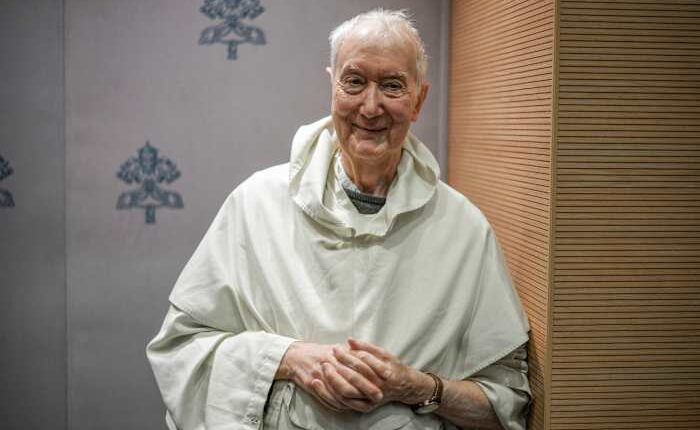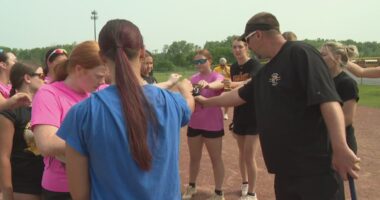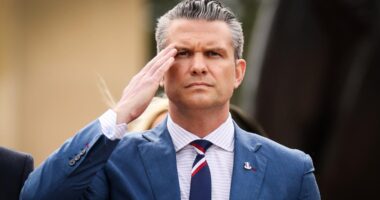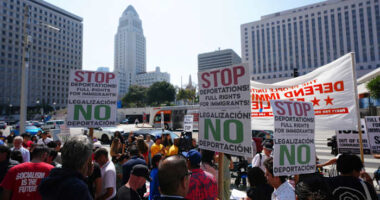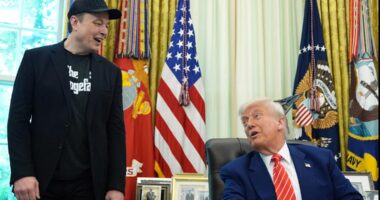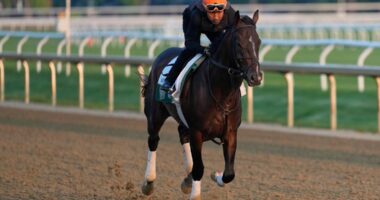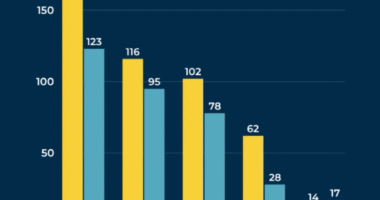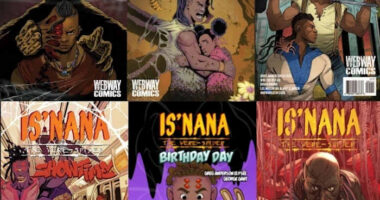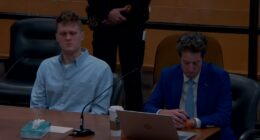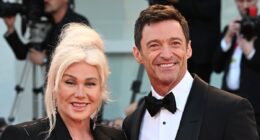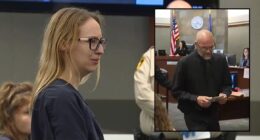
Pope Francis is set to appoint 21 new cardinals who are aligned with his reform agenda. Among them are individuals who have played significant roles in key events of his papacy. These include a Dominican preacher who served as the spiritual guide for a recent gathering of bishops convened by Francis, a Neapolitan priest known for his work in the streets like the Pope himself, and a Peruvian bishop who has strongly supported Francis’ efforts to address abuse within the Church.
This upcoming consistory will mark Francis’ 10th occasion of appointing new cardinals, and it represents the largest group of cardinals eligible to vote during his tenure as Pope. By adding these individuals on Saturday, Francis will have appointed a total of 110 out of the 140 cardinals under the age of 80, who are allowed to participate in electing the next Pope.
The increase in the number of voting-age cardinals surpasses the limit of 120 set by St. John Paul II. However, next year, 13 current cardinals will reach the age of 80 and become ineligible to vote, bringing the total count back within the established limit.
This consistory is notable too because the 21 men being elevated aren’t the same ones Francis named Oct. 6 when he announced an unusual December consistory.
One of Francis’ original picks, Indonesian Bishop Paskalis Bruno Syukur, the bishop of Bogor, asked not to be made a cardinal “because of his desire to grow more in his life as a priest,” the Vatican said. Francis quickly substituted him with the Naples archbishop, Domenico Battaglia, known for his pastoral work in the slums and rough parts of Naples.
Which country gets the most new cardinals?
Battaglia is one of five Italians getting the red hat, keeping the once-dominant Italian presence in the College of Cardinals strong. Turin is getting a cardinal in its archbishop, Roberto Repole, as is Rome: Baldassare Reina, who on the same day Francis announced he was becoming a cardinal also learned that Francis had promoted him to be his top administrator for the diocese of Rome.
Francis, who is technically bishop of Rome, has been conducting a years-long reorganization of the Rome diocese and its pontifical universities. Reina – who is also grand chancellor of the pre-eminent Pontifical Lateran University – will be expected to execute the reform.
Another Italian is the oldest cardinal: Angelo Acerbi, a 99-year-old retired Vatican diplomat. He is the only one among the 21 new cardinals to be older than 80 and thus ineligible to vote in a conclave. Francis’ picks on Saturday also include the youngest cardinal: the 44-year-old head of the Ukrainian Greek Catholic Church in Melbourne, Australia, Mykola Bychok.
Yet another Italian is one of two Vatican priests who do jobs in the Holy See that don’t usually carry the red hat: Fabio Baggio is undersecretary in the Vatican development office. Francis also decided to make a cardinal out of George Jacob Koovakad, the priest who organizes the pope’s foreign travels.
Other picks have high-profile roles in Francis’ reforms.
The archbishop of Lima, Peru, Carlos Gustavo Castillo Mattasoglio, made headlines recently because of an extraordinary essay he penned for El Pais newspaper in which he called for the suppression of an influential Peruvian Catholic movement, the Sodalitium Christianae Vitae, which also has a presence in the U.S.
Castillo called the group a “failed experiment” of the church in Latin America, one of several conservative, right-wing movements that cropped up in the 1970s and 1980s as a counterweight to the more left-leaning liberation theology.
“My hypothesis is that the Sodalitium obeys a political project,” Castillo wrote. “It is the resurrection of fascism in Latin America, artfully using the church by means of sectarian methods.”
Francis has recently expelled the Sodalitium’s founder and several top members following a Vatican investigation.
What are the geographic breakdowns?
Castillo is one of five new Latin American cardinals named by history’s first Latin American pope. They include the archbishop of Santiago del Estero, Argentina, Vicente Bokalic Iglic; the archbishop of Porto Alegre, Brazil, Jaime Spengler; the archbishop of Santiago, Chile, Fernando Natalio Chomali Garib and the archbishop of Guayaquil, Ecuador, Luis Gerardo Cabrera Herrera.
Francis has long sought to broaden the geographic diversity of the College of Cardinals to show the universality of the church, particularly where it is growing. Asia got two new cardinals: Tarcisio Isao Kikuchi, the archbishop of Tokyo; and Pablo Virgilio Sinogco David, the bishop of Kalookan, Philippines. Africa also got two new cardinals: the archbishop of Abidjan, Ivory Coast, Ignace Bessi Dogbo, and the bishop of Algiers, Algeria, Jean-Paul Vesco.
“There hasn’t been an African pope, but it’s a possibility in the church,” Dogbo said in an interview on the eve of his installation. “And I think that this eventuality — which is not necessarily a demand — if this eventuality were to arise, the universal church would have to be ready to take it on.”
Francis also tapped the archbishop of Tehran, Iran, Dominique Joseph Mathieu, the bishop of Belgrade, Serbia, Ladislav Nemet, while the lone North American cardinal named is the archbishop of Toronto, Frank Leo.
The Lithuanian-born cardinal-elect, Rolandas Makrickas, has a special job in this pontificate: As the archpriest of the St. Mary Major basilica, he hosts Francis every time the pope returns from a foreign trip, since the pope likes to pray before an icon of the Madonna in the church. Additionally, Makrickas oversaw a recent financial reform of the basilica and would have been involved in identifying the future final resting place for Francis, since the Argentine pope has said he will be buried there.
The pope’s preacher
Perhaps the most familiar new cardinal to anyone who has been following Francis’ reform agenda is the Dominican Timothy Radcliff, the spiritual father of the just-concluded synod, or gathering of bishops. The years-long process aimed to make the church more inclusive and responsive to the needs of rank-and-file Catholics, especially women.
A British theologian, the white-robed Radcliffe often provided clarifying, if not humorous interventions during the weeks-long debate and retreats. At one point he set off a mini-firestorm by suggesting that external financial pressures influenced African bishops to reject Francis’ permission to allow blessings for gay couples. He later said he just meant that the African Catholic Church is under pressure from other well-financed faiths.
As the synod was winding down, he offered some valuable perspective.
“Often we can have no idea as to how God’s providence is at work in our lives. We do what we believe to be right and the rest is in the hands of the Lord,” he told the gathering. “This is just one synod. There will be others. We do not have to do everything, just try to take the next step.”
___
Associated Press religion coverage receives support through the AP’s collaboration with The Conversation US, with funding from Lilly Endowment Inc. The AP is solely responsible for this content.
Copyright 2024 The Associated Press. All rights reserved. This material may not be published, broadcast, rewritten or redistributed without permission.
